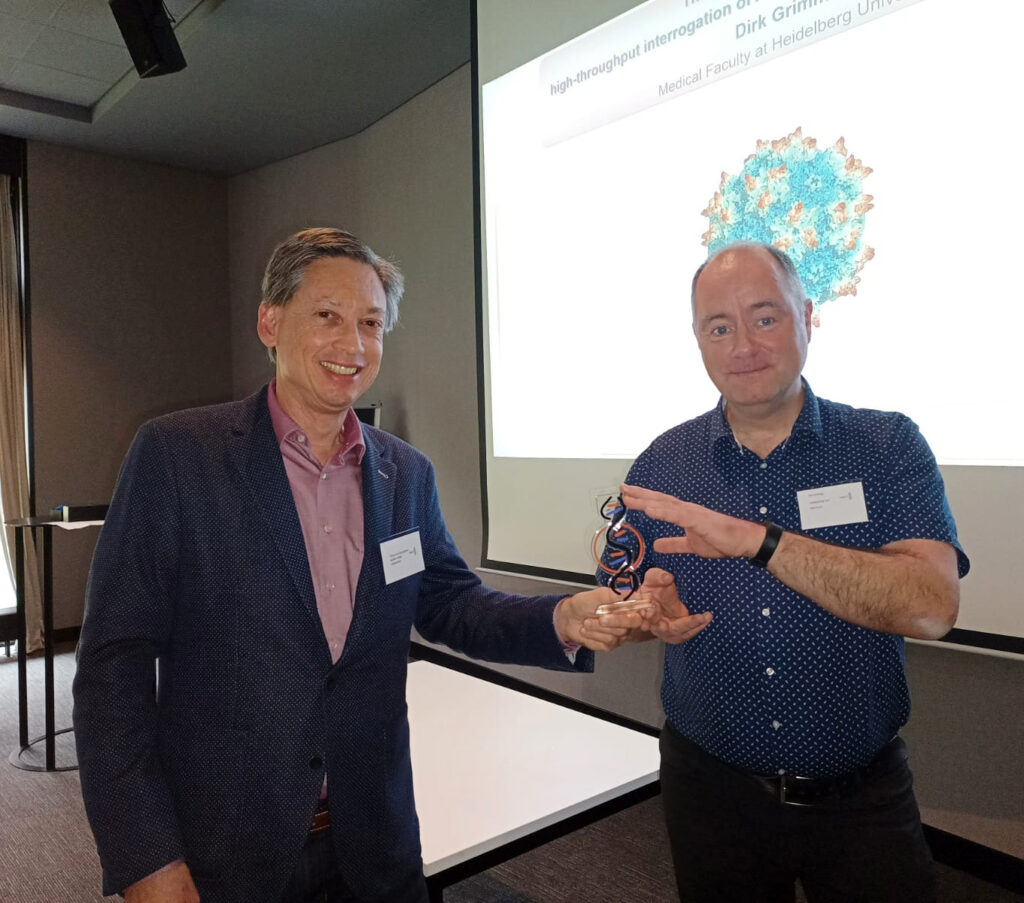To celebrate the Society’s 20th anniversary, the Netherlands Society of Gene and Cell Therapy established a new award in 2019 that seeks to honor an individual who has achieved a specific high impact contribution or a lifetime of significant contributions to the field of gene and cell therapy. The NVGCT Outstanding Achievement Award is presented at the NVGCT annual symposium. The recipient is selected from nominations presented to the board by a yearly changing nomination committee.
In 2020, due to the pandemic, the annual symposium was cancelled. Still, the NVGCT recognized Prof. Dr. Dirk Grimm as the awardee of this year, and the award was presented in 2021.
Prof. Grimm was trained as a biologist at Kaiserslautern and Heidelberg Universities. He received his master’s in biology in 1994, after which he started his PhD in Heidelberg with prof. Jürgen Kleinschmidt to work on applied tumor virology. In 1998 he received his PhD summa cum laude and after a short stay as a postdoc in Prof. Kleinschmidt’s lab he moved to Stanford in 2001 to work with Prof. Mark Kay on directed evolution of AAV. In 2007 he returned to Germany to start his own research group “virus-host interactions” at Heidelberg University and became a full professor in 2017. Prof. Grimm has dedicated his research to the development of safe adeno-associated viral vectors which have taken center stage in the development of gene therapies. He pioneered the use of molecular evolution technologies for generation of AAV capsids with altered cell specificities and other improved properties. His team exploits these technologies to create novel AAV vectors for human gene therapies of diseases such as infection with viral or parasitic pathogens, or monogenic disorders affecting major organs such as skeletal muscle, heart or lung. In addition, AAV vectors are customized for tissue specific expression of cellular reprogramming, DNA editing and gene knockdown molecules. Prof. Grimm makes clever use of the combination of gene editing and gene silencing, for example to restrict AAV-delivered Cas9 expression to hepatocytes by miRNA-controlled expression of a Cas9 inhibitor protein, thereby preventing undesired off-target effects of Cas9 in other cell types. Prof. Grimm is a member of several comprehensive and international research consortia and has collaborations with industry to speed up the development of improved AAV vectors. He received several awards, amongst which the “outstanding new investigator award” by the American Society of Gene & Cell Therapy in 2015 and a research award from the Deutsche Duchenne Stiftung.

